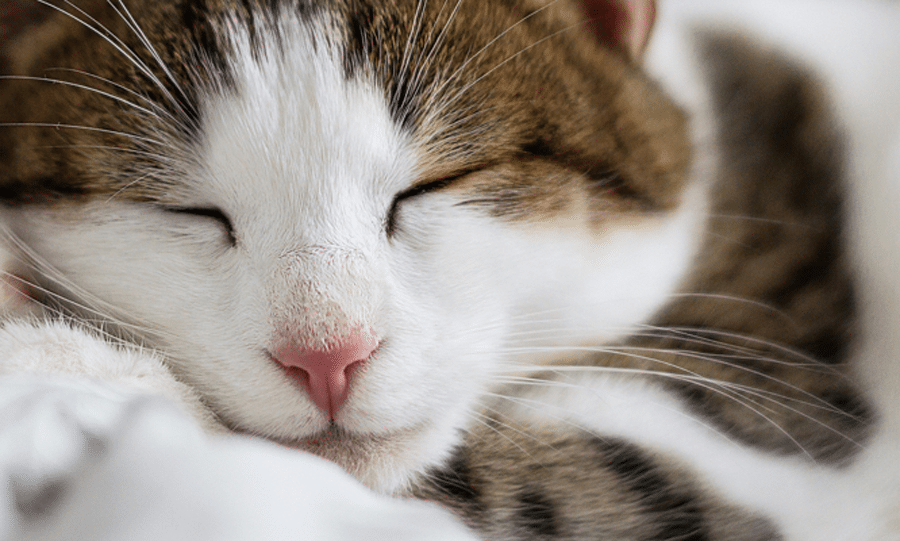Foster a Cat or Dog
Make a Difference
Short-or-long-term foster care is great for folks who cannot adopt.
Help provide a safe space for pets to begin their new, happy lives.
Animal House Shelter would not be where we are today without foster homes. Our foster families save pets who are too young to be adopted yet, elderly, recovering from surgery, scared or depressed. Fostering, is a selfless, compassionate and generous commitment, and we recognize that.
As foster parents to the cats and dogs of our facility, you provide the love and stability they need. We thank you for that!
Simple Steps to Becoming a Foster Parent to a Cat or Dog
Complete the Foster Care Application and be on your way to changing the life of a cat or dog.

Save a Life
When you foster a pet, we have room to bring another pet to our no-kill shelter. You’re saving two lives!

Free Food & Medical
We provide you with all the food and supplies you need. We take care of all their medical needs as well.

Perfectly Paired Pets
After you fill out your foster application, our foster home coordinator works with you to find the right pets for your home.
Why Foster an Animal?
- Fostering allows us to save even more lives by allowing us the space to rescue another animal from animal control before they are euthanized.
- Fostering a dog or cat is a fun and rewarding experience that the whole family can participate in and receive unconditional love in return.
- We cover the cost of all of the medical needs, food, bowls, playpens, litter boxes, cages ect while you are fostering so there is no cost to the foster home.
- You are keeping the animal in a safe, quiet environment while they get all of their booster vaccines so they won’t get sick.
- We receive over 300 emails a day pleading for our help to rescue hundreds of cats and dogs! The more people willing to become a fosters, the more animals lives we can save every day!
“If someone asks me why I foster and spend all this time on these dogs the answer is… pure love. I may only be one part of their journey but I am saving many lives. The dogs give me so much unconditional love and loyalty in the short time I have them, its the least I can do. My favorite part of fostering is adoption day. I love meeting their new families and sending them home. Bittersweet yes, but its worth my heartache knowing they are safe and going home.”
Typical Steps to Become a Cat or Dog Foster Parent
- Fill out the foster care application form.
- Our foster home coordinator will contact you as soon as we process the application to discuss what type of foster animal may work well in your family.
- Once the animal arrives, we will notify you when you should arrive at the shelter to pick up the animal and we will give you everything you need to take them home that day!
- Love and care for your foster animal.
- If fostering a kitten or puppy, they will need to come back to the shelter every 15 days for booster vaccines and go to our vet clinic for neutering on a specified day & time.
- If fostering an adult dog or cat, you would need to be able to bring them back to the shelter to meet potential adopters.
- Return the animal to the shelter to find their permanent home through adoption.
Frequently Asked Questions About Fostering a Pet
What are the requirement's to become a foster?
- Before applying to be a foster, ensure all family members are in agreement with fostering a pet in need
- You must complete a foster application online.
- Be 21 years of age or older and be able to pick up foster pets at AHS
- You have an approved application and received a phone call from our foster care specialist, a copy of a current drivers license and credit card and a signed foster agreement, prior to picking up their first foster animal.
- All foster homes must be open to a “home check” and willing to apply for a IDOA Foster Home License (This is required by IL state law – there is a $25 fee payable to Illinois Department of Agriculture and you receive your license)
What types of animals are available to foster?
- Pregnant/nursing dogs and cats
- Lots of litters of orphaned puppies and kittens until they can be spayed/neutered (per state law, litters of animals must be kept together until they are at least 8 weeks of age)
- Animals needing extra socialization
- Dogs and cats that have medical or surgical needs
- Dogs or cats that have had longer stays in the shelter
- Elderly, depressed or scared animals.
Will it cost me anything to care for the animal?
How long will I typically care for my foster?
This depends on each individual animal(s). Most kittens/puppies need to continue in foster care until they have been altered, vaccinated and ready for adoption. This typically takes 4-6 weeks with frequent appointments at the shelter and our local vet clinic.
In a long-term foster home, it is up to the family/individual as to how long they/you will foster the dog or cat. Ideally, the dog or cat would reside in the foster home until they are adopted. This could be anywhere from a week to several months. Requirements of fostering a long term dog or cat would include bringing the dog or cat to AHS for potential adoption visits. We do our best to accommodate the foster family and potential adopter for the best day and time to meet.
What if I have pets?
What if the animal(s) need medical care?
What if I have an after-hours emergency?
Who can become a foster parent?
Can I "try-out" a foster animal for a few days?
If a situation arises with the animal you are fostering, please contact the shelter or anyone on the emergency contact list to discuss solutions.
What supplies will I need to foster an animal(s)?
What are some of the reasons an animal needs to be in foster care?
- The animal is recovering from medical conditions (e.g., a broken leg, heartworm treatments) and just needs a few weeks in a loving home to mend.
- Some animals might need help with training, medical issues, rehabilitation from surgery, behavior and/or socialization.
- Some animals are shy, scared and/or stressed in the shelter environment and need a quiet place to reside while they wait for their forever home.
- There may be adult dogs or cats that have stopped eating due to the stress of losing their family and need the security of a home situation to get back on her feet.
- The dog may have a minor behavior problem (jumping up, mouthiness) that a foster family can work on to make the animal more appealing to adopters.
- Young puppies and kittens that need to get all of their vaccines before being around other animals so they need to be isolated in a home environment so they won’t get sick.
Or the shelter may simply have a space crunch (especially during times of natural disasters like hurricanes or other emergencies) and need to find a short-term housing alternative for some of the animals.
Why do young puppies and kittens need to be fostered?
Animal House Shelter provides you with a playpen or kennel, food, bowls, newspaper, ect- anything you need. You will need to bring the puppy(s) back to the shelter on specified dates for vaccines as well as a neutering appointment at a specified date. We of course pay for the neutering and any other vet appointments that Animal House Shelter has agreed to. The animal can return to the shelter for adoption once all the vaccines and any medical procedures have been completed.
Why might an adult cat need to be fostered?
These precious, loving creatures come to us scared and confused and they often become quickly depressed. They do not adapt well to losing their family and comforts of a home and they often become gravely ill because of this depression.
There is a bright side to this sad story, however, and that is the miracle of a FOSTER HOME! By offering one of these kitties a place to stay while we vaccinate them and booster those vaccinations you will be giving them a precious advantage that can truly mean the difference between life and death.
I'm worried I will fall in love with my foster pet!
With puppies/kittens, AHS needs to know if a foster home would like to adopt the animal 14 days before the date of adoption because that is when they are posted to the public for adoption.


